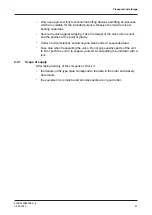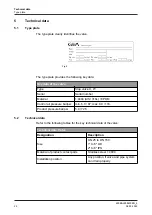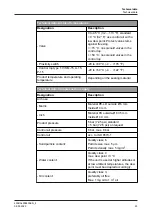
These factors can be combined in such a way as to make an optimal cleaning
result probable. Depending on the cleaning method (medium, concentration,
temperature and contact times), the seals are affected to different degrees. This
can impair the function and the service life.
9.2
Passivation
Before commissioning a plant, passivation is usually carried out for long pipes
and tanks.
Valve blocks are usually excepted from this. Passivation is typically performed
using nitric acid (HNO
3
) at approx. 80 °C (176 °F) at a concentration of 3 % and a
contact time of 6 to 8 hours.
Hint!
TEFASEP® gold valve seat seals achieve optimum sealing only after
an initial CIP or SIP cleaning Operating conditions CIP or SIP cleaning:
- Medium: Lye, hot water or saturated steam
- Temperature: >80 °C (176 °F)
- Holding time: 20 … 30 min
The valve must be brought to the closed position for a brief period
(min. 5 seconds) immediately after CIP or SIP cleaning. During
commissioning, regularly check all sealing points for leaks. Exchange
defective seals and repeat the CIP or SIP process.
Cleaning
Passivation
430BAL008430EN_4
08.03.2022
35















































